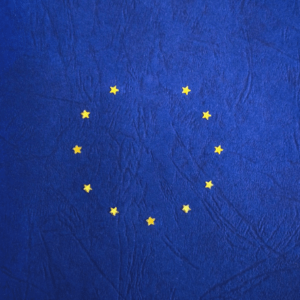Justin Richardson, CEO of Bedfordshire Chamber of Commerce, speaks to ProActivity about the everyday impacts of Brexit on local businesses.
“It’s been, and still is, a huge challenge for businesses. We’ve seen a number of businesses unprepared. The complexity of new trade rules and regulations and how this affects their specific trading needs, could not have been anticipated. The situation has caused a lot of instability. We’ve seen companies just pausing everything until they can get their heads around what’s happening and to understand the impact.”
When the UK exited from the European Union on the 1 January 2021, trade with the EU as we know it, changed forever. The level of uncertainty this posed for affected businesses was significant and while there has been a general welcome for the Trade and Cooperation Agreement (TCA). Due to the need to have an agreement, what does it mean in reality for businesses and the new rules they have to work to?
The free trade agreement that came into effect on the 1 January between the UK and the EU, doesn’t exactly mean ‘free trade’. What are some of the new rules and complexities businesses are having to deal with?
“Rules of origin are impacting, with some businesses falling foul of these, particularly in relation to food and textiles. These are regulations around where goods originate from and the affect this then has on Customs Duty tariffs. Goods have to be of UK or EU origin to attract preferential rates, either wholly of UK or EU origin, or have substantially transferred origin by having sufficient value or manufacturing added to those goods. But there are many complex exceptions.”
“For example, one UK company buys textiles from a company in France that imports them from Bangladesh; the textiles are therefore subject to a 12% tariff on entry to the UK, as they are not of EU or UK origin. The UK company then brands the textiles and exports to their customer in the Netherlands, attracting a further tariff of 12%. The tariff applies on the export from the UK because the embroidery is classed as insufficient production to allow the rule of origin to transfer. The company is faced with either absorbing these costs, or passing them onto the customer and risk losing the business. Almost overnight some businesses have lost competitive access to the EU and this is quite a common scenario we are seeing.”
We know that the VAT landscape for trading with the EU has also changed since 1 January. What difficulties are you seeing businesses having to deal with around VAT?
“It’s completely unchartered territory for many. Businesses that trade with the EU now need a fiscal representative in each country they trade with, to deal correctly with VAT.”
It’s not hard to see how the multiple complexities of customs declarations, VAT and rules of origin are putting the pressure on businesses. And because this is all new, there’s no data yet on which to base any decision-making. What is the nature of the enquiries now to the Chamber compared to the end of last year?
“The enquiries are growing in complexity as businesses get into the detail of their individual trading situations with the EU. The majority of these enquiries are from businesses wanting to understand the paperwork, and rules of origin, in order to, first and foremost, keep their supply chains moving. Just to give you an idea of the impact, customs declarations are predicted to rise from 55 million to 250 million plus, and there are now, in total, 26 government agencies at EU borders, all with an interest.”
Based on the nature of the support you see businesses in urgent need of now, and the fact there is no one set of rules businesses can follow, what advice would you give to those struggling?
“I would urge individual businesses to get help with the paperwork needed to keep supply chains moving. The Chamber can help with this. And, if you are affected with VAT, I would advise you speak to your accountant in the first instance. I would also advise businesses to carry out a staff audit, since settlement status for EU employees has to be applied for by the end of June. And keep an eye on those areas that are still uncertain, like how we will need to deal with data, and how professional qualifications translate across. There may also be potential to do things differently. For instance, we’re hearing from businesses wanting to source products locally instead of outside the UK, which they hadn’t previously considered.”
ProActivity would like to thank Justin Richardson for his help with this article.
Get in touch for a free initial consultation to find out what we can do for you.









